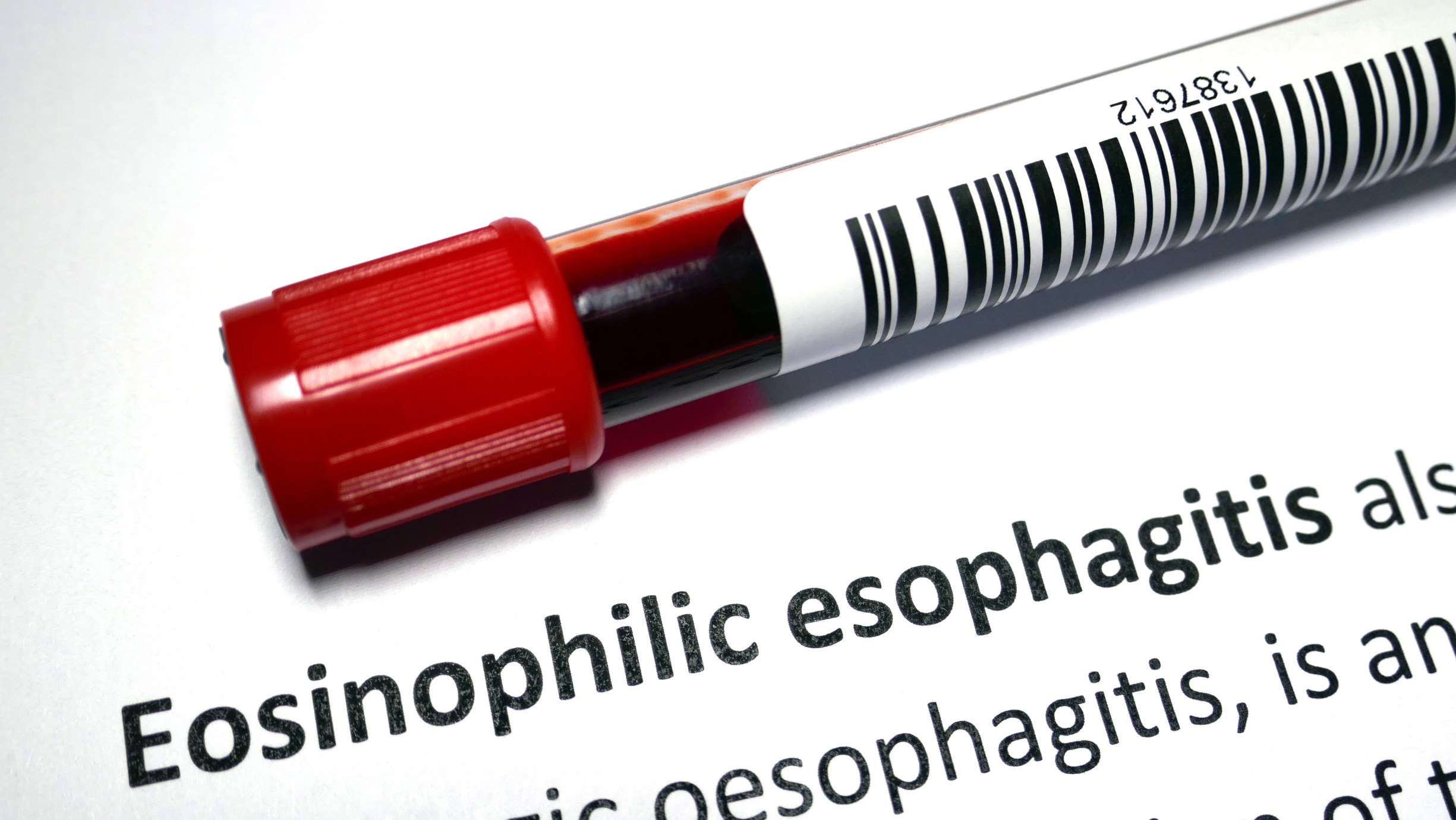Eosinophilic esophagitis (EoE) is a condition characterised by inflammation in the esophagus. It occurs when a specific type of white blood cell called eosinophil accumulates in the lining of the esophagus, leading to esophagitis (inflammation of the esophagus). This buildup of eosinophils is typically a response to acid reflux or an allergic reaction to certain foods or allergens. EoE can affect individuals of all ages, although it is more commonly observed in younger Caucasian males, accounting for approximately 75% of cases. If you or a loved one has been diagnosed with EoE, we encourage you to get in touch with our specialists for further assistance.
The incidence of eosinophilic esophagitis (EoE) has been on the rise, closely associated with the increasing prevalence of asthma and allergies. Some common causes of EoE include:
– Allergic reactions: EoE can be triggered by allergic reactions to various substances, such as certain foods, pollen, or other allergens.
– Esophageal damage: Inflammation of the esophagus can result in tissue scarring and narrowing of the esophagus, leading to EoE.
– Dysphagia and impaction: Difficulties in swallowing or experiencing food getting stuck in the esophagus can contribute to the development of EoE.
– Chest pain or abdominal pain: These symptoms may be associated with EoE and can be indicative of the condition.
Several risk factors are associated with the diagnosis of EoE:
– Geography: Individuals residing in cold, dry climates have a higher likelihood of being diagnosed with EoE.
– Season: EoE diagnoses are more prevalent during seasons with elevated levels of pollen and other allergens.
– Gender: Males are more prone to EoE than females.
– Allergies and asthma: Individuals with existing allergies or asthma are at a higher risk of developing EoE.
– Genetics: Having a family member with EoE increases the likelihood of being diagnosed with the condition.
If you suspect EoE or have concerns, we recommend consulting with our specialists for further evaluation and guidance.
The symptoms for adults and children can differ slightly. The main symptoms for adults include:
– Difficulty swallowing (dysphagia)
– Food getting stuck in your esophagus while eating
– Acid reflux
– Chest pain
– Upper stomach pain
– No response to acid reflux medication
– Cough
The main symptoms for children include:
– Difficulty feeding (infants)
– Difficulty eating (children)
– Stomach and abdominal pain
– Vomiting
– Dysphagia
– Poor growth, weight loss, malnutrition
– Impaction (food stuck in the esophagus)
If you or your child are experiencing any combination of these symptoms, or take over-the-counter (OTC) heartburn medication more than twice a week, make an appointment with your nearest specialist today.
The treatment approach for eosinophilic esophagitis (EoE) primarily revolves around managing symptoms and addressing underlying triggers. Here are some commonly used treatments:
– Dietary modifications: If food allergies are identified as triggers for EoE symptoms, your physician may recommend eliminating specific foods from your diet. The six-food elimination diet (SFED) is often employed, involving the exclusion of wheat, milk, eggs, nuts, soy, fish, and shellfish for a defined period. Gradual reintroduction of individual foods helps identify trigger foods causing the reaction.
– Medications: Certain medications may be prescribed to alleviate EoE symptoms. Topical steroids, such as swallowed corticosteroids, can help reduce inflammation in the esophagus. Proton pump inhibitors (PPIs) may also be used to reduce acid reflux, which can contribute to EoE.
– Dilation: In cases where symptoms persist despite dietary changes and medications, esophageal dilation may be recommended. This procedure involves stretching the esophagus to improve swallowing function and alleviate difficulties associated with EoE.
It’s important to note that treatment plans are tailored to individual patients, and the approach may vary depending on the severity of symptoms and individual factors. Regular monitoring and follow-up with your healthcare provider are essential to assess treatment effectiveness and make any necessary adjustments.
Please consult with a healthcare professional for a thorough evaluation and personalised treatment recommendations for EoE.
If you or a loved one is facing eosinophilic esophagitis, we encourage you to reach out to our team of specialists. At The Gut Clinic UK, we are dedicated to providing personalised care and effective management for conditions like EoE. Our approach centers around you as the patient, tailoring treatments to your unique needs.
With access to the latest techniques and treatments, our specialists are well-equipped to address EoE and help you achieve optimal health. We prioritise compassionate care, ensuring that you receive the support and guidance you need throughout your treatment journey.
To benefit from our specialised services, please contact any of our specialists located near you. We are committed to assisting you in your quest for improved well-being and a better quality of life.
FIND A SPECIALIST
Find a specialist for your gut problem.
The Gut Clinic UK is a one of largest physician-led platform renowned for its exceptional Gut specialists in the United Kingdom. We take pride in our rigorous selection process for specialists, ensuring that only the most qualified and experienced professionals join our platform.
Our specialists actively engage with patients, providing them with clear explanations, answering their questions, and involving them in the decision-making process.

